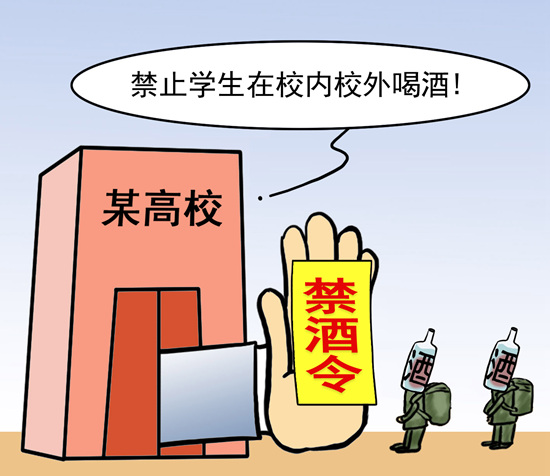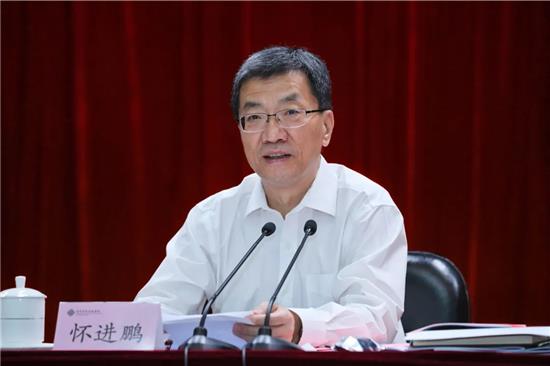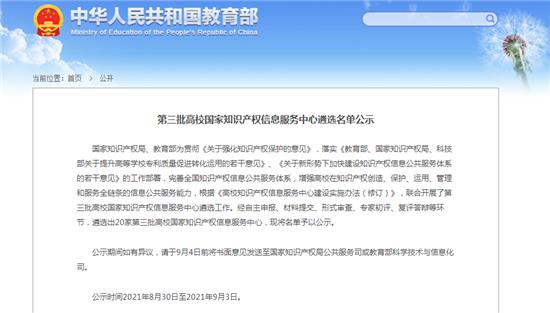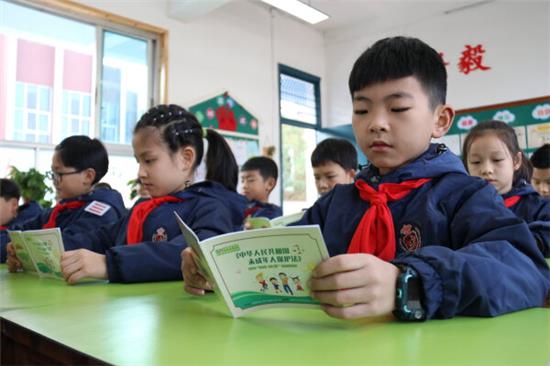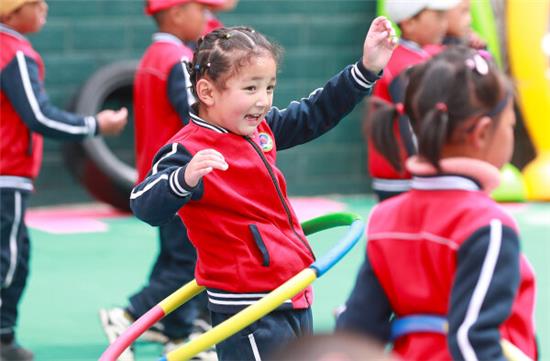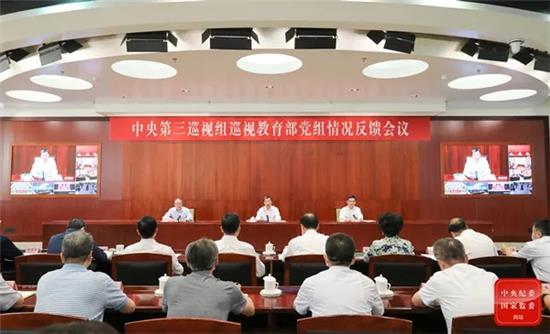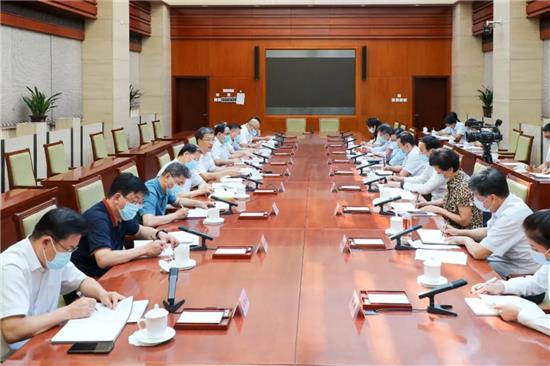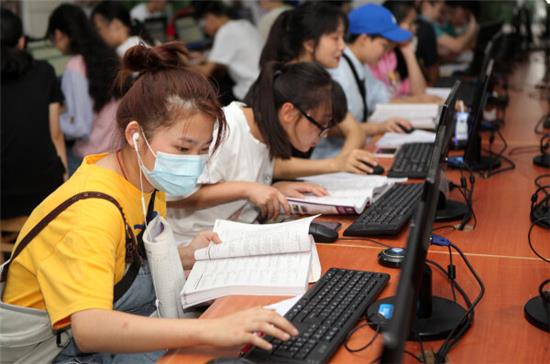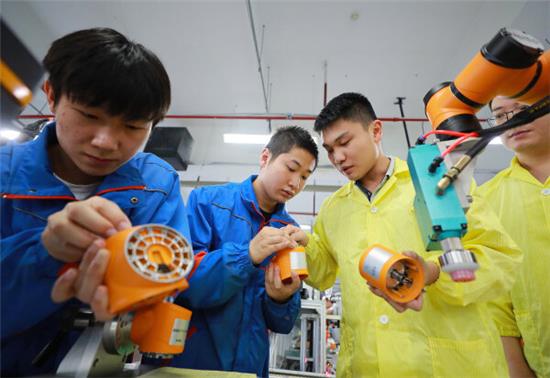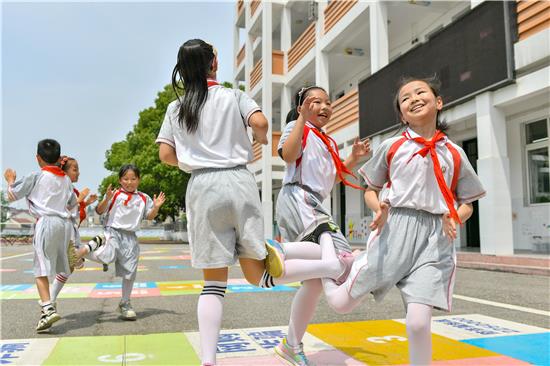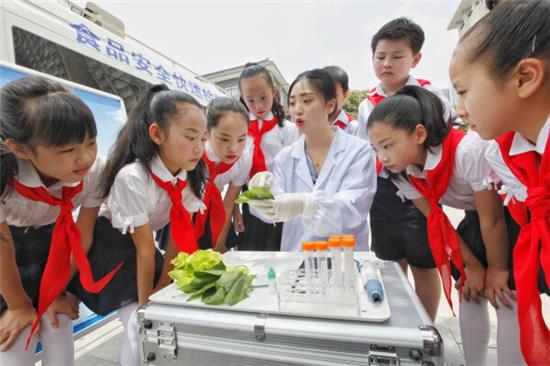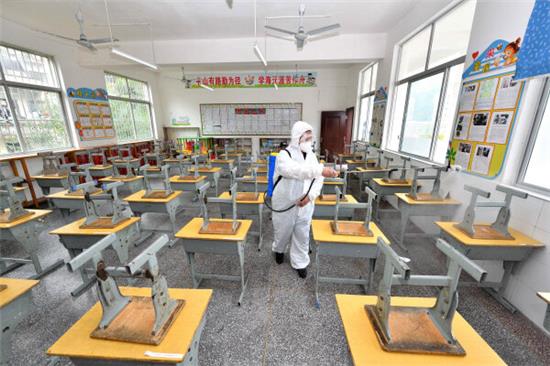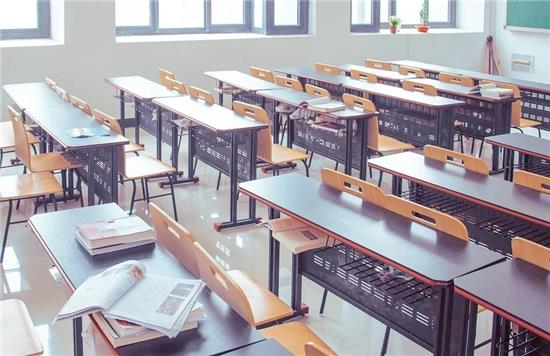Xinhua News Agency, Beijing, July 9th
Regulations on the supervision and administration of private investment funds
Chapter I General Provisions
Article 1 In order to standardize the business activities of private equity funds (hereinafter referred to as private equity funds), protect the legitimate rights and interests of investors and related parties, and promote the standardized and healthy development of the private equity fund industry, these Regulations are formulated in accordance with the Securities Investment Fund Law of People’s Republic of China (PRC) (hereinafter referred to as the Securities Investment Fund Law), the Trust Law of People’s Republic of China (PRC), the Company Law of People’s Republic of China (PRC), the Partnership Enterprise Law of People’s Republic of China (PRC) and other laws.
Article 2 In People’s Republic of China (PRC), if funds are raised in a private way, investment funds are set up, or companies and partnerships are established according to law for the purpose of investment activities, which shall be managed by private fund managers or general partners, and investment activities shall be conducted for the benefit of investors.
Article 3 The State encourages the private equity fund industry to develop in a standardized and healthy way, and give play to its functions such as serving the real economy and promoting scientific and technological innovation.
Engaged in private equity fund business activities, should follow the principles of voluntariness, fairness and good faith, protect the legitimate rights and interests of investors, and shall not violate laws, administrative regulations and national policies, public order and good customs, and shall not harm national interests, social public interests and the legitimate rights and interests of others.
Private fund managers manage and use private fund properties, private fund custodians trust private fund properties, and private fund service institutions engage in private fund services, which shall abide by laws and administrative regulations, fulfill their duties, and fulfill their obligations of honesty, trustworthiness, prudence and diligence.
Private equity fund practitioners shall abide by laws and administrative regulations, abide by professional ethics and codes of conduct, and receive compliance and professional ability training in accordance with regulations.
Article 4 Private equity fund property is independent of the inherent property of private equity fund managers and private equity fund custodians. The debt of the private equity fund property shall be borne by the private equity fund property itself, except as otherwise provided by law.
Investors shall distribute income and bear risks according to the fund contract, articles of association and partnership agreement (hereinafter referred to as fund contract).
Article 5 The supervision and management of the business activities of private equity funds shall implement the line, principles, policies and decision-making arrangements of the Party and the State. The State Council Securities Regulatory Authority shall supervise and manage the business activities of private equity funds in accordance with the laws and the regulations, and its dispatched offices shall perform their duties in accordance with the authorization.
If the state has other provisions on the supervision and management of private equity funds initiated or invested with a certain proportion of government funds, such provisions shall prevail.
Article 6 the State Council Securities Regulatory Authority shall conduct differentiated supervision and management on private fund managers according to their business types, assets under management, continuous compliance, risk control and ability to serve investors, and conduct classified supervision and management on different types of private funds such as venture capital and securities investment.
Chapter II Private Equity Fund Managers and Private Equity Fund Custodians
Article 7 The manager of a private equity fund shall be a legally established company or partnership enterprise.
Where the assets of a private equity fund established in the form of a partnership are managed by the general partner, the provisions of this Ordinance on the private equity fund manager shall apply to the general partner.
Shareholders and partners of private fund managers, as well as controlling shareholders and actual controllers of shareholders and partners, or holding or actually controlling other private fund managers, shall comply with the provisions of the State Council Securities Regulatory Authority.
Article 8 Under any of the following circumstances, a person shall not be a private equity fund manager, nor shall he become the controlling shareholder, actual controller or general partner of a private equity fund manager:
(1) The circumstances specified in Article 9 of these Regulations;
(2) A private fund manager whose registration has been cancelled due to the circumstances listed in Item 3, Paragraph 1, Article 14 of these Regulations, and who has not been registered for more than 3 years since the date of cancellation, or who is the controlling shareholder, actual controller or general partner of the private fund manager;
(3) There is a conflict of interest between the business it is engaged in and the management of private equity funds;
(4) There are serious bad credit records that have not been repaired.
Article 9 Under any of the following circumstances, a person shall not be a director, supervisor, senior manager, executive partner or appointed representative of a private equity fund manager:
(1) Being sentenced to punishment for committing crimes of corruption, bribery, dereliction of duty, property infringement or disrupting the order of the socialist market economy;
(two) in the last three years, the financial management department has imposed administrative penalties for major violations of laws and regulations;
(3) The directors, supervisors, factory directors, senior management personnel, executive partners or appointed representatives who are personally responsible for the bankruptcy liquidation of the company or enterprise they work for or the revocation of their business licenses due to poor management have not been more than five years since the date of the bankruptcy liquidation of the company or enterprise or the revocation of its business licenses;
(four) the amount of debt is large, and it is not paid off at maturity or is included in the list of people who have lost their trust;
(5) Employees of fund managers, fund custodians, securities and futures trading places, securities companies, securities registration and settlement institutions, futures companies and other institutions and staff of state organs who have been dismissed due to illegal acts;
(6) Lawyers, certified public accountants, employees of asset appraisal institutions, verification institutions and investment consulting practitioners whose practice certificates have been revoked or their qualifications have been cancelled due to illegal acts, and it has not been more than five years since the day when their practice certificates have been revoked or their qualifications have been cancelled;
(7) Being the legal representative, executive partner or appointed representative of a private equity fund manager whose registration has been cancelled due to the circumstances listed in Item 3 of Paragraph 1 of Article 14 of these Regulations, or being a responsible senior manager, it has not been more than 3 years since the date when the private equity fund manager was cancelled.
Article 10 A private fund manager shall submit the following materials to the institution entrusted by the securities regulatory authority of the State Council (hereinafter referred to as the registration and filing institution) according to law, and go through the registration formalities:
(a) unified social credit code;
(2) Articles of association or partnership agreement;
(3) Basic information of shareholders, actual controllers, directors, supervisors, senior management personnel, general partners, executive partners or appointed representatives, and information of relevant beneficial owners of shareholders, actual controllers and partners;
(four) a letter of credit commitment to ensure that the submitted materials are true, accurate and complete and abide by the provisions of supervision and administration;
(5) Other materials as prescribed by the the State Council Securities Regulatory Authority.
Where the controlling shareholder, actual controller, general partner, executive partner or appointed representative of the private equity fund manager changes, it shall go through the formalities of change registration with the registration and filing institution in accordance with the provisions.
The registration and filing institution shall publicize the relevant information of the registered private fund manager.
Without registration, no unit or individual may use the words "fund" or "fund management" or similar names for investment activities, except as otherwise provided by laws, administrative regulations and the state.
Article 11 A private fund manager shall perform the following duties:
(a) to raise funds according to law and handle the filing of private equity funds;
(2) Managing, keeping accounts and investing in the properties of different private equity funds under management;
(3) Managing and investing private equity funds in accordance with the fund contract, and establishing an effective risk control system;
(4) Determine the income distribution plan of private equity funds according to the fund contract, and distribute the income to investors;
(5) Providing investors with information related to private equity fund management business activities as agreed in the fund contract;
(6) Keeping records, account books, statements and other relevant materials of private equity fund property management business activities;
(seven) other duties stipulated by the the State Council securities regulatory authority and agreed in the fund contract.
Where funds are raised in a non-public way to set up an investment fund, the private fund manager shall also exercise litigation rights or conduct other legal acts in his own name for the property interests of the private fund.
Article 12 Shareholders, actual controllers and partners of a private equity fund manager shall not commit any of the following acts:
(a) false capital contribution, withdrawal of capital contribution, entrusted or accepted by others;
(2) interfering with the business activities of private fund managers without legal procedures such as resolutions of the shareholders’ meeting or the board of directors;
(3) Requiring managers of private equity funds to use the property of private equity funds to seek benefits for themselves or others and harm the interests of investors;
(four) other acts prohibited by laws, administrative regulations and the provisions of the the State Council securities regulatory authority.
Article 13 A private fund manager shall continuously meet the following requirements:
(1) It is in good financial condition and has working capital suitable for the business type and the scale of assets under management;
(2) The legal representative, executive partner or appointed representative and senior manager in charge of investment management hold a certain proportion of the equity or property share of the private fund manager in accordance with the provisions of the the State Council Securities Regulatory Authority, except as otherwise provided by the state;
(3) Other requirements as stipulated by the the State Council Securities Regulatory Authority.
Article 14 Where a private fund manager is under any of the following circumstances, the registration and filing institution shall cancel the registration of the private fund manager in time and publicize it:
(a) to apply for cancellation of registration;
(2) It is dissolved, revoked or declared bankrupt according to law;
(three) due to illegal fund-raising, illegal business and other major illegal acts were investigated for legal responsibility;
(four) the first private equity fund has not been filed within 12 months from the date of registration;
(5) After all the managed private equity funds are liquidated, no new private equity funds have been filed within 12 months from the date of liquidation;
(6) Other circumstances as stipulated by the the State Council Securities Regulatory Authority.
Before the registration institution cancels the registration of the private equity fund manager, it shall notify the private equity fund manager to liquidate the private equity fund property or transfer the private equity fund management responsibility to other registered private equity fund managers according to law.
Article 15 Unless otherwise agreed in the fund contract, the private equity fund property shall be entrusted by the private equity fund custodian. If the private equity fund property is not managed, the institutional measures and dispute settlement mechanism for ensuring the safety of private equity fund property shall be clarified.
Article 16 Where the private equity fund property is entrusted, the private equity fund custodian shall perform his duties according to law.
The custodian of a private equity fund shall establish an isolation mechanism between the custody business and other businesses according to law to ensure the independence and safety of the private equity fund property.
Chapter III Fund Raising and Investment Operation
Seventeenth private fund managers should raise funds by themselves, and may not entrust others to raise funds, except as otherwise provided by the the State Council Securities Regulatory Authority.
Article 18 Private equity funds shall be raised or transferred to qualified investors, and the cumulative number of investors in a single private equity fund shall not exceed the number prescribed by law. Private fund managers are not allowed to set up more than one private fund for a single financing project to break through the number limit prescribed by law; It is not allowed to reduce the standard of qualified investors by splitting and transferring the shares or income rights of private equity funds.
Qualified investors mentioned in the preceding paragraph refer to units and individuals that have reached the specified asset scale or income level, and have the corresponding risk identification ability and risk-taking ability, and their subscription amount is not less than the specified limit.
The specific standards for qualified investors shall be formulated by the the State Council Securities Regulatory Authority.
Nineteenth private fund managers should fully reveal the investment risks to investors, and match private fund products with different risk levels according to investors’ risk identification ability and risk-taking ability.
Twentieth private equity funds shall not be raised or transferred to units or individuals other than qualified investors; Not to raise or transfer to investors who hold it for others; Not through newspapers, radio stations, television stations, the Internet and other mass media, telephone, SMS, instant messaging tools, e-mail, leaflets, or lectures, reports, analysis meetings and other means to promote to unspecified objects; Not to promote it in a false, one-sided or exaggerated way; Not in the name of private equity fund custodian publicity and promotion; Investors shall not be promised that the investment principal will not be lost or the minimum income will be promised.
Article 21 Where a private equity fund manager uses private equity fund property for investment, he shall indicate the name of the private equity fund when opening an account in the name of the private equity fund manager, being included in the register of shareholders of the invested enterprise or holding other private equity fund property.
Twenty-second private fund managers shall, within 20 working days from the date of completion of private fund raising, submit the following materials to the registration and filing institution for filing:
(1) Fund contract;
(2) Custody agreement or institutional measures to ensure the property safety of private equity funds;
(3) Property certification documents of the private equity fund;
(4) Basic information of investors, subscription amount, number of fund shares held and relevant information of their beneficial owners;
(5) Other materials as prescribed by the the State Council Securities Regulatory Authority.
Private equity funds should have the scale of paid-in raised funds to ensure basic investment ability and anti-risk ability. The registration and filing institutions shall make classified publicity according to the scale of funds raised by private equity funds, and report to the the State Council Securities Regulatory Authority if the total amount of funds raised or the number of investors reaches the prescribed standards.
Article 23 The securities regulatory authority in the State Council shall establish and improve the monitoring mechanism for private equity funds, and conduct centralized monitoring on private equity funds and their investors’ share holdings. The specific measures shall be formulated by the securities regulatory authority in the State Council.
Article 24 The investment of private equity fund property includes buying and selling shares of joint stock limited companies, shares of limited liability companies, bonds, fund shares, other securities and their derivatives, and other investment targets that meet the requirements of the State Council securities regulatory authority.
Private equity fund property shall not be used to operate or operate capital lending, loans and other businesses in disguised form. Private fund managers shall not increase the implicit debt of the government in disguised form by asking the local people’s government to promise to buy back the principal.
Article 25 The investment level of private equity funds shall comply with the provisions of the financial management department of the State Council. However, private equity funds that meet the requirements stipulated by the State Council Securities Regulatory Authority and invest their main fund assets in other private equity funds are not included in the investment level.
The investment levels of venture capital funds and private equity funds stipulated in the second paragraph of Article 5 of these Regulations shall be stipulated by the relevant departments of the State Council.
Twenty-sixth private fund managers should follow the principle of professional management and employ senior managers with corresponding experience to be responsible for investment management, risk control and compliance.
Private fund managers should follow the principle of giving priority to investors’ interests and establish management systems such as investment declaration, registration, review and disposal of employees to prevent interest transfer and conflicts of interest.
Twenty-seventh private fund managers shall not entrust others to exercise their investment management responsibilities.
Where a private equity fund manager entrusts other institutions to provide securities investment advice services for private equity funds, the entrusted institution shall be a fund investment advisory institution as stipulated in the Securities Investment Fund Law.
Article 28 Private fund managers shall establish and improve the management system of related party transactions, and shall not conduct improper transactions or transfer benefits with related parties with private fund property, nor conceal them through multi-layer nesting or other means.
Where a private fund manager uses private fund property to conduct transactions with himself, investors, other private funds managed, private funds managed by other private fund managers controlled by his actual controller, or other entities with significant interests, he shall perform the decision-making procedures agreed in the fund contract and provide relevant information to investors and private fund custodians in a timely manner.
Twenty-ninth private fund managers should hire an accounting firm to audit the property of private funds in accordance with the regulations, provide the audit results to investors, and submit them to the registration and filing institutions.
Thirtieth private fund managers, private fund custodians and their employees shall not have the following acts:
(1) hotchpot his inherent property or others in the private equity fund property;
(2) Taking advantage of the property or position of private equity funds to seek benefits for people other than investors;
(3) Embezzlement and misappropriation of private equity fund property;
(4) disclosing undisclosed information obtained by taking advantage of his position, and using the information to engage in or express or imply others to engage in relevant securities and futures trading activities;
(five) other acts prohibited by laws, administrative regulations and the provisions of the the State Council securities regulatory authority.
Thirty-first private fund managers should provide information to investors in the process of fund raising and investment operation in accordance with the provisions of the the State Council securities regulatory authority and the fund contract.
Where the private equity fund property is managed, the private equity fund manager shall, in accordance with the provisions of the the State Council Securities Regulatory Authority and the custody agreement, provide the private equity fund custodian with basic information of investors, proof materials of ownership change of investment targets and other information in a timely manner.
Article 32 The information provided and submitted by private fund managers, private fund custodians and their employees shall be true, accurate and complete, and shall not commit any of the following acts:
(a) false records, misleading statements or major omissions;
(2) Forecasting the investment performance;
(three) to promise investors that the investment principal will not be lost or the minimum income will be promised;
(four) other acts prohibited by laws, administrative regulations and the provisions of the the State Council securities regulatory authority.
Thirty-third private fund managers, private fund custodians and private fund service institutions shall, in accordance with the provisions of the the State Council Securities Regulatory Authority, submit information on the investment and operation of private funds to the registration and filing institutions. Registration and filing institutions shall, according to different types of private equity funds, make provisions on the content and frequency of information submitted, and summarize and analyze the situation of private equity fund industry, and submit relevant information of private equity fund industry to the State Council securities regulatory authority.
The registration and filing institution shall strengthen the risk early warning, and take timely measures and report to the the State Council Securities Regulatory Authority if it finds that there may be significant risks.
The registration and filing institution shall keep the information specified in the first paragraph of this article confidential, and shall not provide it to the outside world unless otherwise provided by laws and administrative regulations.
Article 34 If the private equity fund manager fails to perform his duties normally or there are serious risks, resulting in the failure of the private equity fund to operate normally or terminate, other professional institutions agreed in the fund contract or determined by relevant regulations shall exercise the functions and powers of replacing the private equity fund manager, modifying or terminating the fund contract in advance, and organizing the liquidation of the private equity fund.
Chapter IV Special Provisions on Venture Capital Funds
Article 35 The term "venture capital fund" as mentioned in these Regulations refers to a private equity fund that meets the following conditions:
(a) the scope of investment is limited to unlisted enterprises, except for the untransferred part of the shares held by the fund and its allotment part after the investment enterprise is listed;
(2) The name of the fund contains the words "venture capital fund" or the words "engaged in venture capital activities" in the business scope of the company or partnership enterprise;
(3) The fund contract embodies the venture capital strategy;
(four) do not use leveraged financing, except as otherwise provided by the state;
(5) The minimum duration of the fund meets the relevant provisions of the state;
(6) Other conditions stipulated by the state.
Article 36 The state gives policy support to venture capital funds, encourages and guides them to invest in growth and innovative venture enterprises, and encourages long-term funds to invest in venture capital funds.
The development and reform department of the State Council is responsible for organizing the formulation of policies and measures to promote the development of venture capital funds. The State Council Securities Regulatory Authority and the State Council Development and Reform Department shall establish and improve the sharing mechanism of information and support policies, and strengthen the coordination of supervision and management policies and development policies of venture capital funds. The registration and filing institution shall timely submit the information related to venture capital funds to the securities regulatory agency of the State Council and the development and reform department of the State Council.
Venture capital funds that enjoy the support of national policies shall be invested in accordance with the relevant provisions of the state.
Article 37 The securities regulatory authority in the State Council shall conduct differentiated supervision and management of venture capital funds, which is different from other private equity funds:
(1) Optimize the business environment of venture capital funds and simplify the registration and filing procedures;
(2) Differentiate supervision and management in fund raising, investment operation, risk monitoring, on-site inspection and other aspects of venture capital funds that are legally raised, invested in compliance and operated in good faith, so as to reduce the frequency of inspection;
(three) to provide convenience for venture capital funds mainly engaged in long-term investment, value investment and the transformation of major scientific and technological achievements in terms of investment withdrawal.
Thirty-eighth registration agencies in the registration, change and other aspects of venture capital funds to implement differentiated self-discipline management different from other private equity funds.
Chapter V Supervision and Administration
Article 39 The securities regulatory authority in the State Council shall supervise and manage the business activities of private equity funds and perform the following duties according to law:
(1) Formulating rules and regulations on the supervision and management of private equity fund business activities;
(2) To supervise and manage private fund managers, private fund custodians and other institutions engaged in private fund business activities, and investigate and deal with illegal acts;
(three) to guide, inspect and supervise the registration and self-discipline management activities;
(4) Other duties as prescribed by laws and administrative regulations.
Fortieth the State Council Securities Regulatory Authority shall have the right to take the following measures when performing its duties according to law:
(1) Conducting on-site inspections on private fund managers, private fund custodians and private fund service institutions, and requiring them to submit relevant business materials;
(two) to enter the place where the suspected illegal act occurred to investigate and collect evidence;
(3) Asking the parties concerned, the units and individuals related to the investigated events and asking them to explain the matters related to the investigated events;
(four) to consult and copy the information such as property registration and communication records related to the investigated events;
(five) to consult and copy the securities trading records, registration and transfer records, financial and accounting materials and other relevant documents and materials of the parties and the units and individuals related to the investigated events; Documents and materials that may be transferred, concealed or damaged may be sealed up;
(six) according to the law to inquire about the parties and the account information related to the event under investigation;
(seven) other measures stipulated by laws and administrative regulations.
In order to guard against the risks of private equity funds and maintain market order, the State Council securities regulatory authorities can take measures such as ordering corrections, supervising conversations and issuing warning letters.
Article 41 When the the State Council securities regulatory body conducts supervision, inspection or investigation according to law, there shall be no less than two supervisors or investigators, and they shall show their law enforcement certificates, supervision, inspection, investigation notices or other law enforcement documents. Business secrets and personal privacy known in supervision, inspection or investigation shall be kept confidential according to law.
Units and individuals under inspection and investigation shall cooperate with the supervision, inspection or investigation conducted by the securities regulatory authority in the State Council according to law, and truthfully provide relevant documents and materials, and shall not refuse, obstruct or conceal them.
Forty-second the State Council Securities Regulatory Authority found that private fund managers violated laws and regulations, or their internal governance structure and risk control management did not meet the requirements, it should be ordered to make corrections within a time limit; If no correction is made within the time limit, or the behavior seriously endangers the steady operation of the private fund manager and damages the legitimate rights and interests of investors, the the State Council securities regulatory authority may take the following measures according to the circumstances:
(a) ordered to suspend part or all of the business;
(2) Ordering the replacement of directors, supervisors, senior managers, executive partners or appointing representatives, or restricting their rights;
(3) Ordering the responsible shareholders to transfer their shares and the responsible partners to transfer their shares of property, and restricting the responsible shareholders or partners from exercising their rights;
(4) Ordering the private equity fund manager to hire or designate a third party institution to audit the private equity fund property, and the relevant expenses shall be borne by the private equity fund manager.
Where a private fund manager operates illegally or has serious risks, which seriously jeopardizes the market order and damages the interests of investors, the the State Council Securities Regulatory Authority may, in addition to taking the measures specified in the preceding paragraph, take measures such as designating other institutions to take over the private fund manager and notifying the registration and filing institution to cancel the registration.
Article 43 The securities regulatory authority in the State Council shall record the credit information of private fund managers, private fund custodians, private fund service institutions and their employees in the credit database of the capital market and the national credit information sharing platform. The State Council Securities Regulatory Authority shall, jointly with relevant departments of the State Council, establish and improve the joint disciplinary system for private fund managers and relevant responsible subjects for dishonesty according to law.
The State Council Securities Regulatory Authority shall establish a cooperative mechanism for information sharing, statistical data submission and risk disposal of private equity fund supervision and management in conjunction with other financial management departments and other relevant departments of the State Council and the people’s governments of provinces, autonomous regions and municipalities directly under the Central Government. In the process of dealing with risks, the relevant local people’s governments should take effective measures to maintain social stability.
Chapter VI Legal Liability
Article 44. Those who use the words "fund" or "fund management" or similar names to carry out investment activities without going through the registration formalities in accordance with Article 10 of these regulations shall be ordered to make corrections, their illegal income shall be confiscated, and a fine of more than 1 time but less than 5 times of their illegal income shall be imposed; If there is no illegal income or the illegal income is less than 1 million yuan, a fine of not less than 100,000 yuan but not more than 1 million yuan shall be imposed. Give a warning to the directly responsible person in charge and other directly responsible personnel, and impose a fine of more than 30,000 yuan and less than 300,000 yuan.
Article 45 If the shareholders, actual controllers and partners of a private equity fund manager violate the provisions of Article 12 of these Regulations, they shall be ordered to make corrections, given a warning or informed criticism, their illegal income shall be confiscated, and they shall be fined between 1 and 5 times their illegal income; If there is no illegal income or the illegal income is less than 1 million yuan, a fine of not less than 100,000 yuan but not more than 1 million yuan shall be imposed. Give a warning or informed criticism to the directly responsible person in charge and other directly responsible personnel, and impose a fine ranging from 30,000 yuan to 300,000 yuan.
Forty-sixth private fund managers who violate the provisions of Article thirteenth of these regulations shall be ordered to make corrections; Refuses to correct, give a warning or informed criticism, and impose a fine of more than 100,000 yuan and less than 1 million yuan, and order it to stop the business activities of private equity funds and make an announcement. Give a warning or informed criticism to the directly responsible person in charge and other directly responsible personnel, and impose a fine ranging from 30,000 yuan to 300,000 yuan.
Article 47 If a custodian of a private equity fund fails to establish a business isolation mechanism in violation of the provisions of the second paragraph of Article 16 of these Regulations, it shall be ordered to make corrections, given a warning or informed criticism, and be fined between 50,000 yuan and 500,000 yuan. Give a warning or informed criticism to the directly responsible person in charge and other directly responsible personnel, and impose a fine ranging from 30,000 yuan to 300,000 yuan.
Forty-eighth in violation of the provisions of Article 17, Article 18 and Article 20 of these regulations on the management and raising methods of qualified investors in private equity funds, the illegal income shall be confiscated and a fine of not less than 1 time but not more than 5 times the illegal income shall be imposed; If there is no illegal income or the illegal income is less than 1 million yuan, a fine of not less than 100,000 yuan but not more than 1 million yuan shall be imposed. Give a warning to the directly responsible person in charge and other directly responsible personnel, and impose a fine of more than 30,000 yuan and less than 300,000 yuan.
Article 49 Anyone who, in violation of the provisions of Article 19 of these regulations, fails to fully disclose the investment risks to investors and misleads them to invest in private equity fund products that do not match their risk identification ability and risk-taking ability shall be given a warning or informed criticism, and be fined between 100,000 yuan and 300,000 yuan; If the circumstances are serious, it shall be ordered to stop the private equity fund business activities and make an announcement. Give a warning or informed criticism to the directly responsible person in charge and other directly responsible personnel, and impose a fine of more than 30,000 yuan and less than 100,000 yuan.
Fiftieth in violation of the provisions of the first paragraph of Article 22 of these regulations, the private equity fund manager fails to put on record the raised private equity fund, and shall be fined from 100,000 yuan to 300,000 yuan. Give a warning to the directly responsible person in charge and other directly responsible personnel and impose a fine of not less than 30,000 yuan but not more than 100,000 yuan.
Article 51 Anyone who, in violation of the provisions of the second paragraph of Article 24 of these Regulations, uses the property of private equity funds for business or disguised business such as fund lending and loans, or asks the local people’s government to promise to buy back the principal, shall be ordered to make corrections, given a warning or informed criticism, his illegal income shall be confiscated, and he shall also be fined not less than 100,000 yuan but not more than 1 million yuan. Give a warning or informed criticism to the directly responsible person in charge and other directly responsible personnel, and impose a fine ranging from 30,000 yuan to 300,000 yuan.
Article 52 In violation of the provisions of Article 26 of these Regulations, if a private fund manager fails to employ senior managers with corresponding experience to take charge of investment management, risk control and compliance, or fails to establish a management system for employees’ investment declaration, registration, review and disposal, he shall be ordered to make corrections, be given a warning or informed criticism, and be fined not less than 100,000 yuan but not more than 1 million yuan. Give a warning or informed criticism to the directly responsible person in charge and other directly responsible personnel, and impose a fine ranging from 30,000 yuan to 300,000 yuan.
Article 53 If a private fund manager, in violation of Article 27 of these regulations, entrusts others to perform investment management duties, or entrusts an institution that does not conform to the provisions of the Securities Investment Fund Law to provide securities investment advice services, he shall be ordered to make corrections, given a warning or informed criticism, his illegal income shall be confiscated, and he shall be fined not less than 100,000 yuan but not more than 1 million yuan. Give a warning or informed criticism to the directly responsible person in charge and other directly responsible personnel, and impose a fine ranging from 30,000 yuan to 300,000 yuan.
Article 54 In violation of the provisions of Article 28 of these regulations, private fund managers who engage in related party transactions shall be ordered to make corrections, given a warning or informed criticism, their illegal income shall be confiscated, and a fine of not less than 100,000 yuan but not more than 1 million yuan shall be imposed. Give a warning or informed criticism to the directly responsible person in charge and other directly responsible personnel, and impose a fine ranging from 30,000 yuan to 300,000 yuan.
Article 55 Private fund managers, private fund custodians and their employees who commit any of the acts listed in Article 30 of these Regulations shall be ordered to make corrections, given a warning or informed criticism, their illegal income shall be confiscated, and they shall be fined between 1 and 5 times of their illegal income; If there is no illegal income or the illegal income is less than 1 million yuan, a fine of not less than 100,000 yuan but not more than 1 million yuan shall be imposed. Give a warning or informed criticism to the directly responsible person in charge and other directly responsible personnel, and impose a fine ranging from 30,000 yuan to 300,000 yuan.
Article 56 Private fund managers, private fund custodians and their employees who fail to provide and submit relevant information in accordance with the provisions of these Regulations, or commit one of the acts listed in Article 32 of these Regulations, shall be ordered to make corrections, given a warning or informed criticism, their illegal income shall be confiscated, and a fine of not less than 100,000 yuan but not more than 1 million yuan shall be imposed. Give a warning or informed criticism to the directly responsible person in charge and other directly responsible personnel, and impose a fine ranging from 30,000 yuan to 300,000 yuan.
Article 57 If a private equity fund service institution and its employees violate the provisions of laws and administrative regulations and fail to perform their duties diligently, they shall be ordered to make corrections, be given a warning or informed criticism, and be fined between 100,000 yuan and 300,000 yuan; If the circumstances are serious, it shall be ordered to stop the private equity fund service business. Give a warning or informed criticism to the directly responsible person in charge and other directly responsible personnel, and impose a fine of more than 30,000 yuan and less than 100,000 yuan.
Article 58 If private fund managers, private fund custodians, private fund service institutions and their employees violate these Regulations or the relevant provisions of the State Council Securities Regulatory Authority, and the circumstances are serious, the State Council Securities Regulatory Authority may take measures to prohibit the relevant responsible persons from entering the securities and futures market.
Refuse or hinder the the State Council securities regulatory agency and its staff from exercising their powers of supervision, inspection and investigation according to law, and the the State Council securities regulatory agency shall order them to make corrections and impose a fine of more than 100,000 yuan and less than 1 million yuan; If it constitutes a violation of public security administration, it shall be punished by the public security organ according to law; If a crime is constituted, criminal responsibility shall be investigated according to law.
Article 59 Any staff member of the the State Council securities regulatory agency or the registration and filing agency who neglects his duty, abuses his power, engages in malpractices for personal gain or takes advantage of his position to ask for or accept other people’s property shall be punished according to law; If a crime is constituted, criminal responsibility shall be investigated according to law.
Article 60 If anyone violates the provisions of these Regulations and the fund contract, he shall bear civil liability for compensation, pay a fine and confiscate his illegal income according to law, and his property is not enough to pay at the same time, he shall bear civil liability first.
Chapter VII Supplementary Provisions
Article 61 Measures for the administration of managers of foreign-invested private equity funds shall be formulated by the the State Council Securities Regulatory Authority in conjunction with relevant departments of the State Council in accordance with foreign investment laws, administrative regulations and these Regulations.
Overseas institutions may not directly raise funds from domestic investors to set up private equity funds, except as otherwise provided by the state.
Private fund managers shall comply with the relevant provisions of the state when conducting private fund business activities abroad.
Article 62 These Regulations shall come into force as of September 1, 2023.
